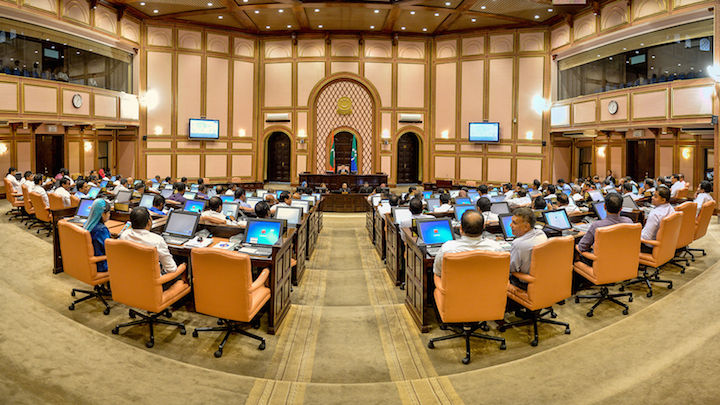Majlis shutdown to ‘block changes to new penal code’
Sittings of the People’s Majlis were suspended this week to block MPs from submitting changes proposed by the Supreme Court to the long awaited penal code. The court wants to set the age of criminal responsibility to seven years and set jail terms and hefty fines for defaming state employees, excerpts obtained by Minivan News reveal.

15 Jul 2015, 21:00
Zaheena Rasheed
Sittings of the People’s Majlis were suspended this week to block MPs from submitting changes to the long awaited penal code, which is due to come into force at midnight tonight.
The Supreme Court has compiled a 150-page draft of a new bill to overhaul the modern penal code. Explaining the decision to suspend sittings, a senior ruling party MP said: “We will not allow the judiciary to dictate laws and overstep its mandate.”
Minivan News has obtained some excerpts of the judiciary proposed bill. The apex court wants to set the age of criminal responsibility to seven years and jail terms and hefty fines for defaming state employees.
The new penal code, passed by the Majlis in 2014, was due to come into force in April this year. But the ruling Progressive Party of the Maldives (PPM) delayed its enforcement until July 16, claiming more time is needed to raise public awareness.
Become a member
Get full access to our archive and personalise your experience.
Already a member?
Discussion
No comments yet. Be the first to share your thoughts!
No comments yet. Be the first to join the conversation!
Join the Conversation
Sign in to share your thoughts under an alias and take part in the discussion. Independent journalism thrives on open, respectful debate — your voice matters.




